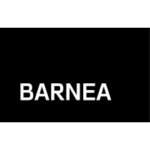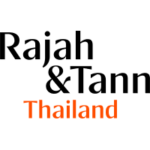-
What has been your jurisdiction’s historical level of interaction with the WTO (e.g. membership date for the GATT/WTO, contribution to initiatives, hosting of Ministerials, trade policy reviews)?
-
Are there any WTO agreements to which your jurisdiction is not party (e.g. Government Procurement Agreement)? Is your jurisdiction seeking to accede to these agreements?
-
Is your jurisdiction participating in any ongoing WTO negotiations (e.g. E-Commerce Joint Initiative) and what has been its role?
-
Has your jurisdiction engaged in the WTO dispute settlement system in the past 5 years? If so, in which disputes and in which capacity (as a party to a dispute or as a third party)?
-
Has your jurisdiction expressed any views on reform of the WTO, in particular, the dispute settlement system and the Appellate Body?
-
What are the key bilateral and/or regional free trade agreements (FTAs) in force for your jurisdiction and from which dates did they enter into force?
-
Is your jurisdiction currently negotiating any FTAs (or signed any FTAs that have not yet entered into force) and, if any, with which jurisdictions? What are your jurisdiction’s priorities in those negotiations (e.g. consolidating critical mineral supply chains, increasing trade in financial services, etc.)? For both FTAs under negotiation and signed FTAs, when are they expected to enter into force?
-
Which five countries are the biggest trading partners for your jurisdiction in relation to each of exports and imports and which goods or services are particularly important to your jurisdiction’s external trade relationships?
-
What are the three most important domestic and three most important international developments that are likely to have the biggest impact on your jurisdiction’s trade profile and priorities?
-
Has your jurisdiction taken any specific domestic measures to address sustainability issues in international supply chains, for example in relation to forced labour, human rights and environmental issues? Is it seeking to address these issues in any FTAs or other international agreements?
-
Is your jurisdiction taking any specific domestic measures to promote near-shoring/on-shoring for strategic goods (i.e. domestic subsidies, import tariffs, or export restrictions)? Is it seeking to address these issues in any FTAs or other international agreements?
-
What is the legal regime governing trade sanctions in your country? Has it evolved in response to ongoing geopolitical developments, such as the on-going crisis in Ukraine?
-
Does your jurisdiction use trade remedies and, if so, what remedies are most commonly used? And in which jurisdictions and on which products are they most commonly applied?
-
What is the key legislation relating to anti-dumping duties, countervailing duties and safeguards? What are the authorities responsible for investigating and deciding whether these remedies are applied?
-
What is the process for a domestic business and/or industry to seek trade remedies (i.e. key documentation, evidence required, etc.)? How can foreign producers participate in trade remedies investigations in your jurisdiction?
-
Does your jurisdiction have any special regulations or procedures regarding investigation of possible circumvention or evasion of trade remedies? What are the consequences of circumventing or evading trade remedies?
-
What are the substantive legal tests in your jurisdiction for the application of remedies? Does your jurisdiction apply a lesser duty rule and/or a public interest test in anti-dumping investigations? Are there any other notable features of your jurisdiction's trade remedies regime?
-
Is there a domestic right of appeal against the authority's decisions? What is the applicable procedure?
-
Has your jurisdiction's imposition of any trade remedies been challenged at the WTO? If so, what was the outcome? A general explanation of trends can be provided for jurisdictions involved in significant trade remedies dispute settlement.
-
What authorities are responsible for enforcing customs laws and regulations and what is their role?
-
Can importers apply for binding rulings from the customs authority in advance of an import transaction? How can customs decisions be challenged?
-
Where can information be found about import tariffs and other customs charges?
-
Does your jurisdiction have any of the following features: a. Authorised Economic Operator (AEO) or equivalent programme? b.Mutual recognition arrangements (MRAs) with other jurisdictions in relation to their AEO programmes? c. Suspension of duties on any goods imports (for example, for goods for which there is no domestic production)? d. Allowing goods imports valued below a certain amount to enter duty free (de minimis shipments)?
-
What free trade zones and facilities such as bonded warehouses are available in your jurisdiction?
-
What are the domestic scrutiny and transparency arrangements before and during negotiations for a trade agreement? What domestic ratification procedures are required once a trade agreement is concluded?
-
What are the domestic procedures for local traders to request the government take action against measures of other jurisdictions that are inconsistent with WTO and/or FTA rules?
United Kingdom: International Trade
This country-specific Q&A provides an overview of International Trade laws and regulations applicable in United Kingdom.












